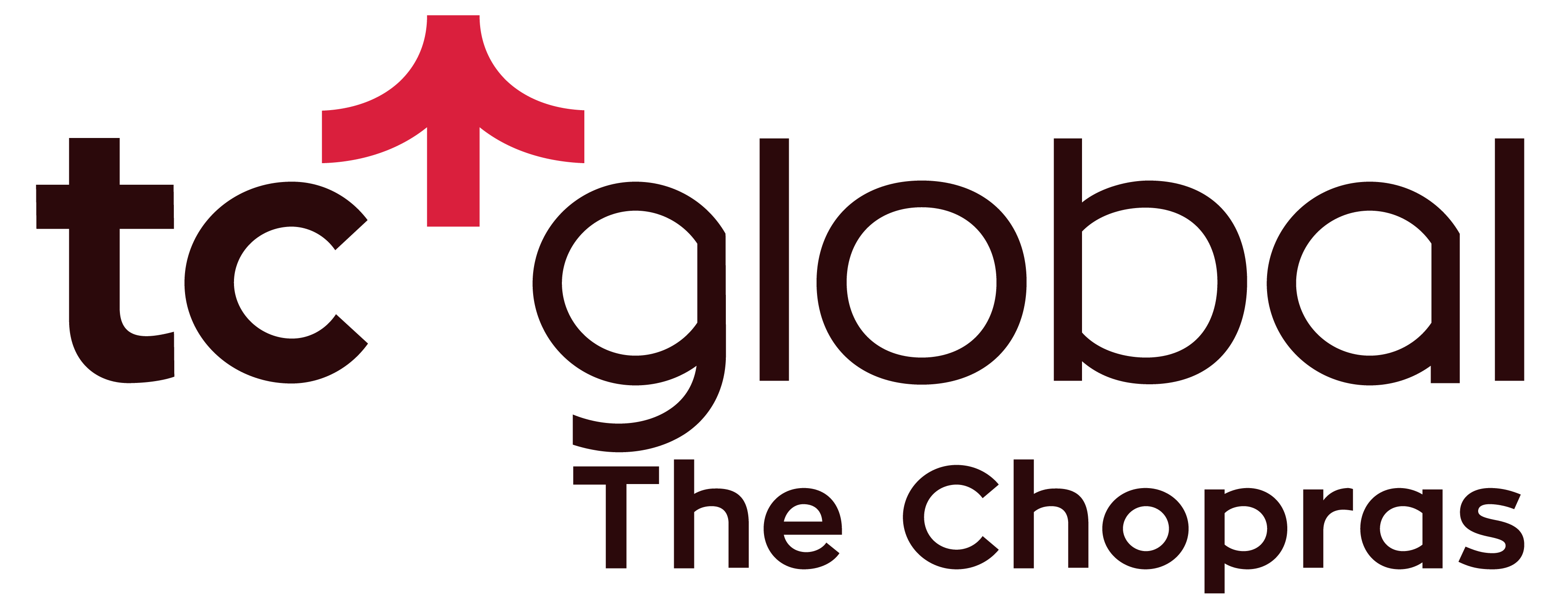When researching higher education in New York, it’s impossible to miss the debate of CUNY vs SUNY, especially for options in the public system. If you are wondering where to begin your research or if SUNY or CUNY is better, then this article is for you.
The City University of New York (CUNY) is the US’s largest urban university system that includes senior colleges, graduate and professional schools, honours colleges and community colleges. Located in New York City, this system consists of 25 campuses that function as engines of social mobility.
The State University of New York (SUNY) is the largest public university system in the US, with 64 colleges under its domain. Offering both in-campus and online courses, SUNY schools are spread throughout the state of New York. SUNY’s university centres are deemed highly prestigious and are selective when it comes to their admission processes.
This article gives an overview of these two university systems, examining their academics, costs, and campus life. Keep reading to find out more.
CUNY vs SUNY: A Quick Glance

The state of New York funds two large university systems to provide top notch yet affordable higher education opportunities for its students. They are the State University of New York and the City University of New York. With a total of 89 schools offering certificates, associate degrees, bachelor’s, master’s and doctoral degrees, among other courses, here are the key differences between these two university systems.
1. Location:
CUNY is limited to New York City while SUNY schools are spread all across the state of New York.
2. Prestige:
While both sets of schools offer top-notch education, SUNY’s university centres are ranked higher and deemed more prestigious when compared to CUNY colleges.
3. Campuses and Courses Offered:
SUNY has 64 campuses and offers over 7,500 degrees when compared to CUNY’s 25 campuses and 2,800+ degrees.
4. Student Life:
CUNY colleges are typically commuter colleges while a majority of SUNY ones are residential, giving a more traditional campus ethos.
Here is a table that helps you compare SUNY vs CUNY at a glance
| City University of NY | State University of NY | |
| Established in | 1961 | 1948 |
| Ownership | Public university system of NYC | Public comprehensive university of New York State |
| Location | 5 boroughs of New York City | Spread across urban and rural areas of New York State |
| Number of constituent Schools | 25 | 64 |
| Enrollment | 225,000+ | 1.3 million |
| Highest Ranking | City College of New York – 105 | Stony Brook University – 58 |
| Typical Bachelor’s Fees (Residents) | $6,930 | $7,070 |
| Typical Bachelor’s Fees (Non-Residents) | $18,600 | $17,280 |
| Housing | Mostly commuter schools | Mostly on, or around campus |
CUNY vs SUNY: Academics

Both CUNY and SUNY are public university systems in New York. As the name suggests, CUNY operates in the five boroughs of New York City, while SUNY colleges are spread throughout the state of New York. Both university systems offer a range of degrees – including certificates, diplomas, associate, bachelor’s, master’s and doctoral degrees – spread across various campuses.
SUNY and CUNY colleges are renowned for their academic programs, top-notch faculty, affordable tuition (especially for in-state students) and scholarship options. Here are the differences between CUNY and SUNY when looking at academics.
What are CUNY Schools?

Funded by both the city and state of New York, the City University of New York is a university system spread across 25 campuses in the 5 boroughs of New York (Manhattan, Brooklyn, Queens, The Bronx, and Staten Island). Designed to build quality higher education at affordable rates, CUNY includes both four-year colleges, community colleges, an honours college, and graduate and professional schools.
Four Year Colleges
(Offering bachelor degree programs, also referred to as senior colleges)
- Baruch College
- Brooklyn College
- College of Staten Island
- Hunter College
- John Jay College of Criminal Justice
- Lehman College
- Medgar Evers College
- New York City College of Technology (City Tech)
- Queens College
- The City College of New York
- York College
Graduate and Professional Schools
(Offering masters’, doctoral, and other specialised graduate degrees)
- CUNY School of Law
- CUNY Graduate Center
- Craig Newmark Graduate School of Journalism at CUNY
- CUNY Graduate School of Public Health and Health Policy
- CUNY School of Labor and Urban Studies
- CUNY School of Professional Studies
Honours College
(Providing more challenging and interdisciplinary honours courses in other colleges)
- Macaulay Honors College
Community Colleges
(Offer certificate and transfer programs, and associate degrees)
- Borough of Manhattan Community College
- Bronx Community College
- Guttman Community College
- Kingsborough Community College
- Queensborough Community College
- LaGuardia Community College
- Hostos Community College
What are SUNY Schools?

The largest comprehensive university system in the United States, the State University of New York or the SUNY system comprises 64 institutions that include research universities, academic medical centres, community colleges, liberal arts colleges and technology colleges, in addition to an immense online learning network. With over 1.3 million students in credit-bearing courses, SUNY is committed to creating opportunities and providing access to higher education at affordable rates.
University Centres and Doctoral Degree Granting Institutions
(Offering undergraduate teaching, research and advanced graduate and professional studies)
- University at Albany
- Alfred University
- Binghamton University
- University at Buffalo
- Cornell College of Agriculture and Life Sciences*
- New York State College of Human Ecology at Cornell University*
- NYS School of Industrial & Labor Relations at Cornell University*
- New York State College of Veterinary Medicine at Cornell University*
- Downstate Health Sciences University
- College of Environmental Science and Forestry
- College of Optometry
- Stony Brook University
- SUNY Polytechnic Institute
- Upstate Medical University
University Colleges
(Awards bachelor’s and master’s degrees in liberal arts and sciences and professional disciplines)
- SUNY Brockport
- SUNY Buffalo State
- SUNY Cortland
- Empire State University
- SUNY Fredonia
- SUNY Geneseo
- SUNY New Paltz
- SUNY Old Westbury
- SUNY Oneonta
- SUNY Oswego
- SUNY Plattsburgh
- SUNY Potsdam
- SUNY Purchase College
Technology Colleges
(Emphasis on hands-on training for in-demand careers. Offers certificate programs, associate, bachelor’s and master’s degrees in technical as well as traditional disciplines)
- SUNY Alfred State College
- SUNY Canton
- SUNY Cobleskill
- SUNY Delhi
- SUNY Farmingdale State College
- SUNY Maritime College
- SUNY Morrisville
Community Colleges
(Offers certificate and transfer programs, and associate degrees)
- SUNY Adirondack
- SUNY Broome
- Cayuga Community College
- Clinton Community College
- Columbia Greene Community College
- Corning Community College
- Dutchess Community College
- SUNY Erie
- SUNY Fashion Institute of Technology
- Finger Lakes Community College
- Fulton-Montgomery Community College
- Genesee Community College
- Herkimer Community College
- Hudson Valley Community College
- Jamestown Community College
- Jefferson Community College
- Mohawk Valley Community College
- Monroe Community College
- Nassau Community College
- SUNY Niagara
- North Country Community College
- Onondaga Community College
- SUNY Orange
- Rockland Community College
- Schenectady Community College
- Suffolk County Community College
- SUNY Sullivan
- Tompkins Cortland Community College
- Ulster County Community College
- SUNY Westchester Community College
Top Schools and Acceptance Rates
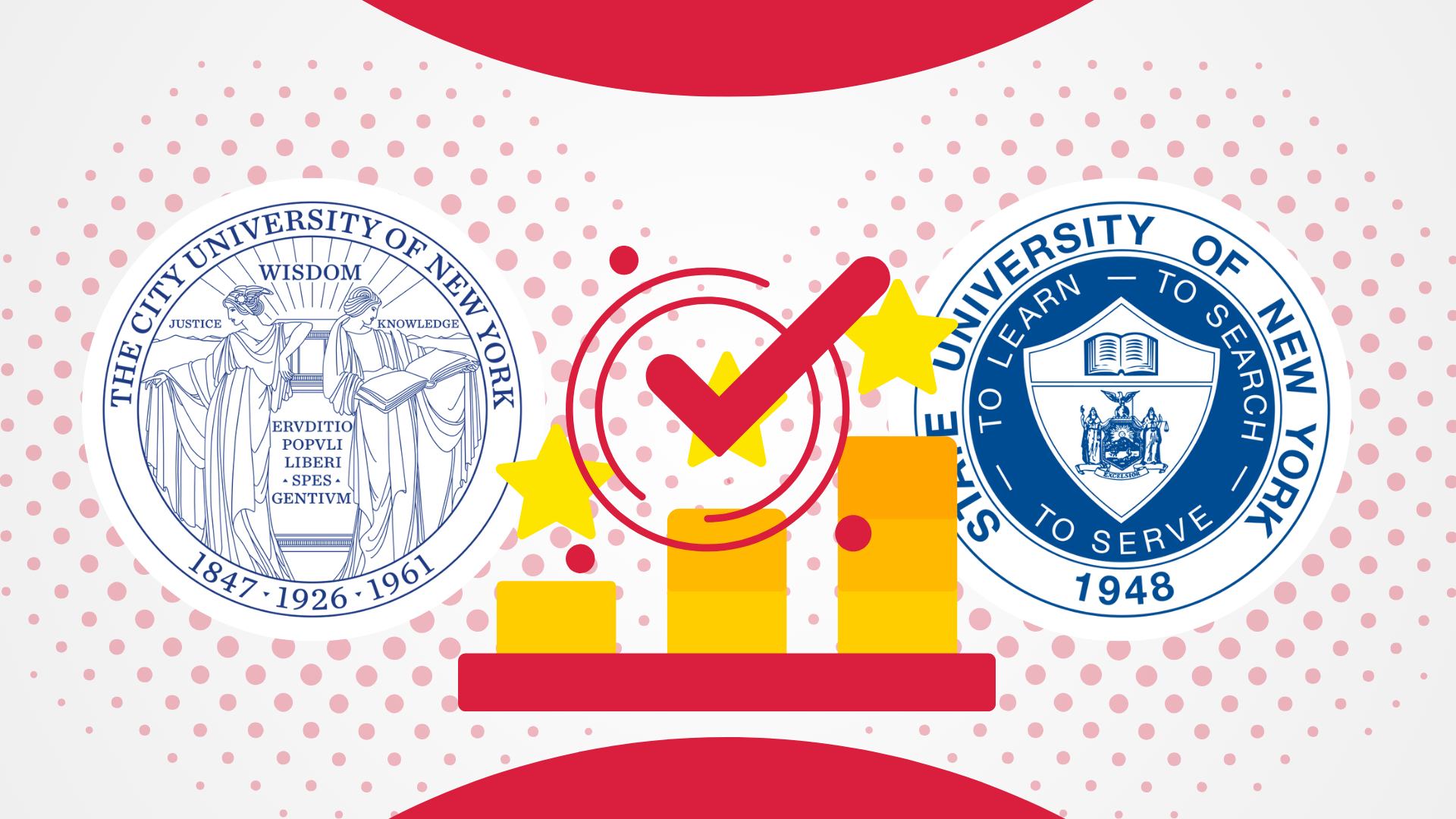
When comparing the rankings of CUNY vs SUNY, it is clear that both are public university systems renowned for their academic rigour. While the specific ranks can vary widely depending on the type of institution, SUNY schools, particularly the university centres, have a higher academic reputation and are considered more prestigious.
Here are the top schools in each of the university systems.
Top-ranked Schools of CUNY
Among the eleven 4-year colleges in the CUNY system, 5 colleges have been recognised among the Nation’s Best 4-year colleges by Princeton Review in 2023. These schools have stood apart because of their academic excellence and strong career prospects for their graduates. Three of the five – Brooklyn, Hunter and City – have further gained a reputation of being “green colleges”, not only for their sustainable campus life but also for preparing their graduates for careers in the clean energy sector.
| Institution | Rank* | Acceptance Rate |
| City College of New York | 105 (National Ranking) | 62% |
| Baruch College | 9 | 50% |
| Hunter College | 21 | 48% |
| Brooklyn College | 38 | 55% |
| Queens College | 45 | 69% |
* – City College of New York is ranked among other universities in the national level while the other colleges are ranked at a regional level – Best Regional Level, North – by US News and World Report. Among this list of the best regional universities, CUNY’s John Jay College of Criminal Justice is also ranked highly, at the 17th place.
Another top program that often gets overlooked in the CUNY system is Macaulay Honours College. Since it is not a standalone institution, it is not ranked separately. You can apply for Macaulay honours from 8 different CUNY colleges. Primarily offering state-of-the-art interdisciplinary courses, Macaulay is designed for high-achieving students who are pursuing an honours degree. The prestige associated with Macaulay and the limited number of seats available keeps this program’s acceptance rate at around 5%. As a Macaulay student, you have access to the resources and courses of the 8 participating CUNY schools.
Top Ranked Schools of SUNY
A number of SUNY schools, especially the university centres, find their spots in the list of top universities in the country, according to the rankings published by US News and World Report.
| University | National Rank | Acceptance Rate |
| Stony Brook University | 58 | 49% |
| Binghamton University | 73 | 42% |
| University at Buffalo | 76 | 68% |
| SUNY ESF | 115 | 70% |
| University at Albany | 133 | 68% |
Besides these universities, SUNY Geneseo and NEW Paltz are ranked highly for their undergraduate teaching programs. Alfred College, SUNY Canton and Cobleskill are some of the top colleges in the North regional listing.
Degrees and Class Sizes

If you consider the number and types of institutions that constitute both the university systems, it becomes clear that both SUNY and CUNY offer an immense number of courses and degree options to its students.
CUNY offers over 2,800+ degree programs across its 25 campuses, ranging from certificate programs and associate degrees to doctoral degrees. Class sizes typically range from 10 to 35, depending on the school and the department; and can go as high as 80 when it comes to some lectures and seminars. CUNY schools follow the semester system with Spring and Fall terms, with a shorter summer term that extends between June and August.
The alma mater of over 1.3 million students, SUNY offers over 7,500 degree programs across its 64 campuses spread throughout New York State. As with CUNY, SUNY also offers The typical class size is between 18 – 30, again depending on the college and the course. The period of formal instruction at SUNY consists of two main 15-week semesters and a shorter summer term.
To sum it up, SUNY has a much wider array of programs and options, simply because it has more than twice the number of schools as CUNY. So, if you are searching for something highly specialised, it is more likely that you might find it in SUNY than CUNY. Looking beyond bachelor’s degrees, SUNY offers more graduate, professional and doctoral programs when compared to the city counterpart.
Application and Admission Timeline

SUNY CUNY systems give their students one significant advantage when it comes to applications. With one common application, you can apply to multiple campuses. CUNY, however, limits its applications to 6 colleges, with one application for freshmen and 4 for transfer students.
CUNY Application Deadlines
- Fall Semester: US Educated Applications – February 1, International Applicants – December 1
- Spring Semester: US Educated Applicants – September 15, International Applications – September 1
SUNY Application Deadlines
The deadline for the Early Application program is December 1. Deadline for the Early Action Program typically falls in October or November. The university recommends all its applicants to submit their completed applications by December 1, even though there is no formal deadline for freshmen or transfer students. This date will help maximise your chances for financial aid, campus housing and consideration for your major of choice.
CUNY vs SUNY: Fees and Scholarships

After academics, the next significant aspect of the SUNY vs CUNY debate is the cost involved. Both are public university systems and therefore, are more affordable than a private university in the US. Both SUNY and CUNY schools were set up in order to provide quality higher education at lower costs, which is why their tuition is even lower than many public colleges in the US.
If you are looking at the difference between SUNY and CUNY in terms of tuition, it is not easy to decide, since the costs are almost at par with one another. Let us take a look at average tuition and other expenses.
Tuition Fees:
The full-time fees for a New York State Resident in most 4-year colleges in CUNY is $6,930 per year and $18,600 for out of state entrants. CUNY Community colleges cost around $4,800 and $9,600 for in-state and out-of-state students respectively.
The median annual tuition in SUNY colleges for baccalaureate programs (4-year degrees) is around $7,070 for in-state students and $17,280 for out-of-state residents and international students. The in-state tuition for community college courses is around $5,290 and $9,500 for out-of-state students, respectively.
Cost of Living:
The difference between CUNY and SUNY when it comes to cost of living is two fold. One, most CUNY students are commuters, so, for those living with parents, guardians or friends, attending college becomes more affordable despite travel time. In contrast, many of the SUNY schools are residential and therefore, involve housing costs as well. Some SUNY schools require freshmen to stay on campus.
Secondly, CUNY schools are located in the 5 boroughs of NYC while SUNY is spread all over the state. In comparison, the cost of living in NYC is much higher when compared to other cities or suburban towns in New York State.
Scholarships:
In addition to the modest tuition rates, both university systems offer numerous options for financial aid. For New York residents, numerous need-based and merit scholarships including FAFSA are available. CUNY has more than 1,000 scholarships, awards and special program opportunities for its in-state students. US Citizens are also eligible for the Excelsior Scholarship which enables students to attend college in both SUNY and CUNY tuition free, if the total family income is less than $125,000.
As public universities, numerous such opportunities are made available to in-state students and US citizens. For international students, government funded need-based aid is not made available. However, some of the individual colleges have merit scholarships that are also open to international students.
CUNY vs SUNY: Student Life and Post Graduation Opportunities
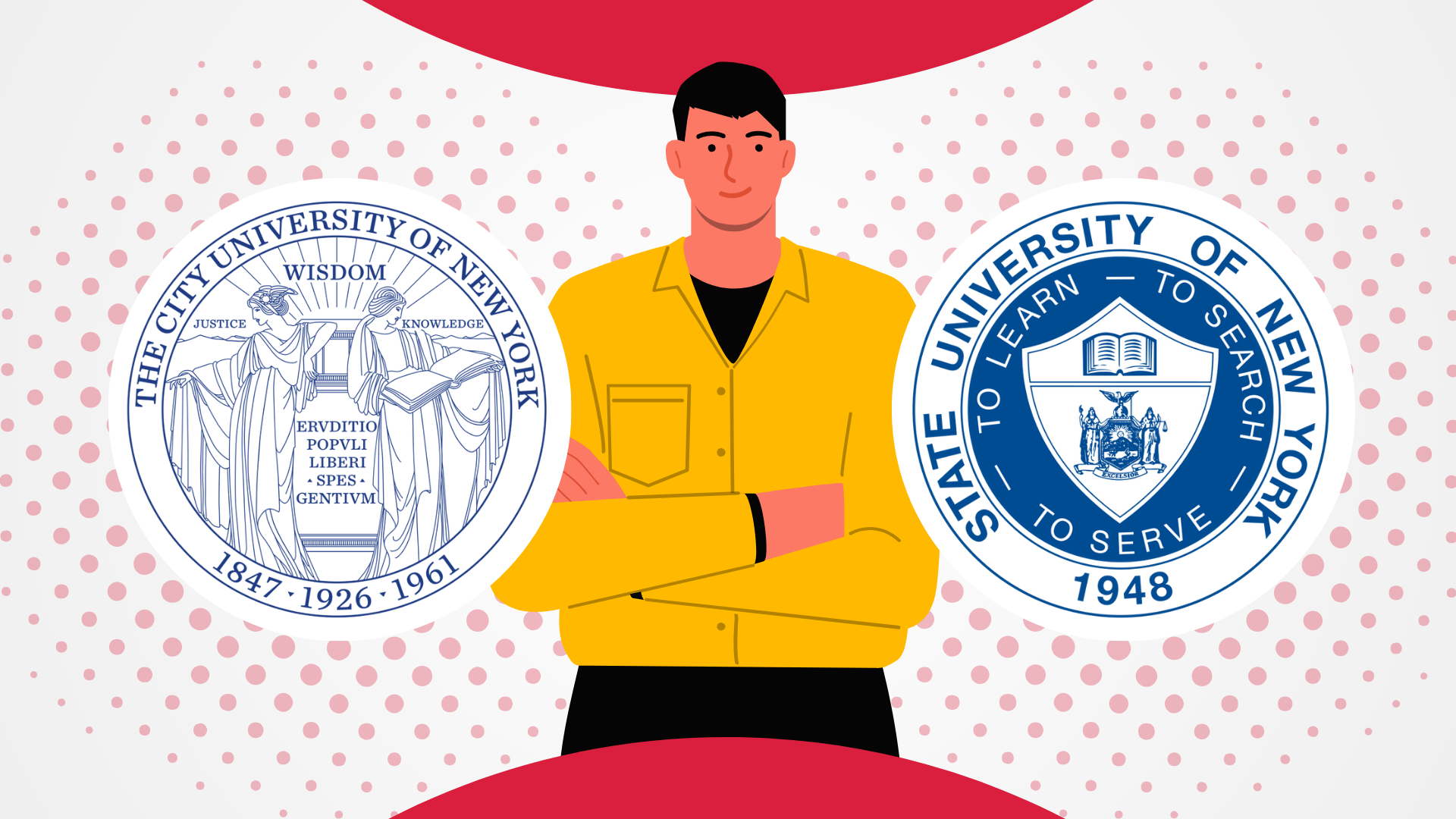
Beyond academics and costs, there are a few other factors that can help you decide “Is SUNY or CUNY better”. Here are some of them.
1. Campus Locations
One of the biggest differences between CUNY and SUNY is their locations. As their names suggest, the 25 campuses of the City University of New York are limited to the five boroughs of New York City. In contrast, the 64 campuses of the State University of New York are spread throughout the state, including NYC. The pro of CUNY is that you get to live in one of the greatest cities in the world and explore its diversity and culture. On the other hand, living in NYC can be expensive compared to other towns and suburbs.
2. Student Body
CUNY: The total student body of CUNY is more than 225,000, distributed across its campuses. It is also one of the most diverse universities in the country, with its faculty members doing cutting-edge work in the space of Diversity, Equity and Inclusion (DEI). Here is a breakdown of the student body by ethnicity.
- Asian/ Pacific Islander – 22%
- Black – 25%
- Hispanic – 29%
- White – 24%
SUNY: The total student body of SUNY is around 1.3 million students registered in credit-bearing courses, continuing education, and community outreach programs. However, SUNY is less diverse in terms of student diversity, with over 51% of the student body being white. The Latinx and Black population make up about 26% of the student body, while international students make up around 5.5%.
3. Housing
Most CUNY colleges are commuter schools. There are residence halls available in six of the 4-year colleges, but they house only about 5% of the student population. An overwhelming majority of CUNY students choose to commute on a daily basis. In contrast, many of the SUNY colleges provide residential options for their students, some even requiring their freshmen to stay on campus. This creates a more traditional campus experience and allows greater scope for socialising.
4. Sports and Extracurriculars
The culture of sports and extracurricular activities vary widely among the different schools of CUNY and SUNY. Both systems have a rich culture of sports, student organizations and groups that encourage students to explore extracurricular activities. If this is a significant point in your decision-making, then it is better to look into the specific campus that you will be applying to. That said, since most CUNY campuses are commuter schools, there is less flexibility for extracurricular activities when compared to SUNY schools.
5. Internships and Placements
Both university systems provide multiple platforms for their students to seek out internships and career prospects. Each of the individual schools has career guidance cells to help its students. If you are looking at graduation rates, the six-year graduation rate is around 66% for SUNY while it is around 53.4% for CUNY. The rate of employability and average salaries vary widely, depending on the school, department and area of specialisation.
Summary

In the debate of SUNY vs CUNY, there are some factors that clearly separate the two public university systems in New York. To summarise the differences:
Consider CUNY schools if
- You want to live in New York City
- Your focus is almost entirely on academics, and you are not keen on a traditional college experience
- You prefer to commute to college daily
Look into SUNY colleges if
- You can keep up with the academic rigour in traditional university setups
- You are looking for higher ranked universities
- You want to live on campus
- You want to choose from an immense number of options when it comes to courses or disciplines.
- You are not particular about living in NYC.
While these can be factored into your decision, the ultimate call rests on whether the course curriculum and the learning outcomes meet your career plans. The question is not even about CUNY or SUNY but rather which college in the CUNY or SUNY system is best suited for your career plans.
The most significant part of your research is to compare courses, syllabi, electives, faculty and research facilities of your preferred degree program, speak to current students, and then decide depending on which school better suits your needs.
We understand that becoming an international student can be very thrilling, but the prep and paperwork of it all can get overwhelming. The easiest way to reduce your stress is to sign up with TC Global.
We simplify international education, learning, and mobility through connecting students, universities, and a global community on a single platform where there are over 1000+ education providers and over 80,000+ courses.
Our platform enables students to study anywhere in the world in just a few steps. From search and discovery and finding the right course fit for you, to applications, visas and departure – we see you through it all.
To move forward with us, download our app or visit tcglobal.com and sign in to create an account on our student platform and onboard with us in quick, easy steps.! ?
Then simply set up a visit Calendly.com/tcglobal to pick a Relationships Team closest to you and choose a slot to meet with a Relationship Member. Be it CUNY vs SUNY, our experts will be with you every step of the way to help you decide.
Let’s shape your future together.
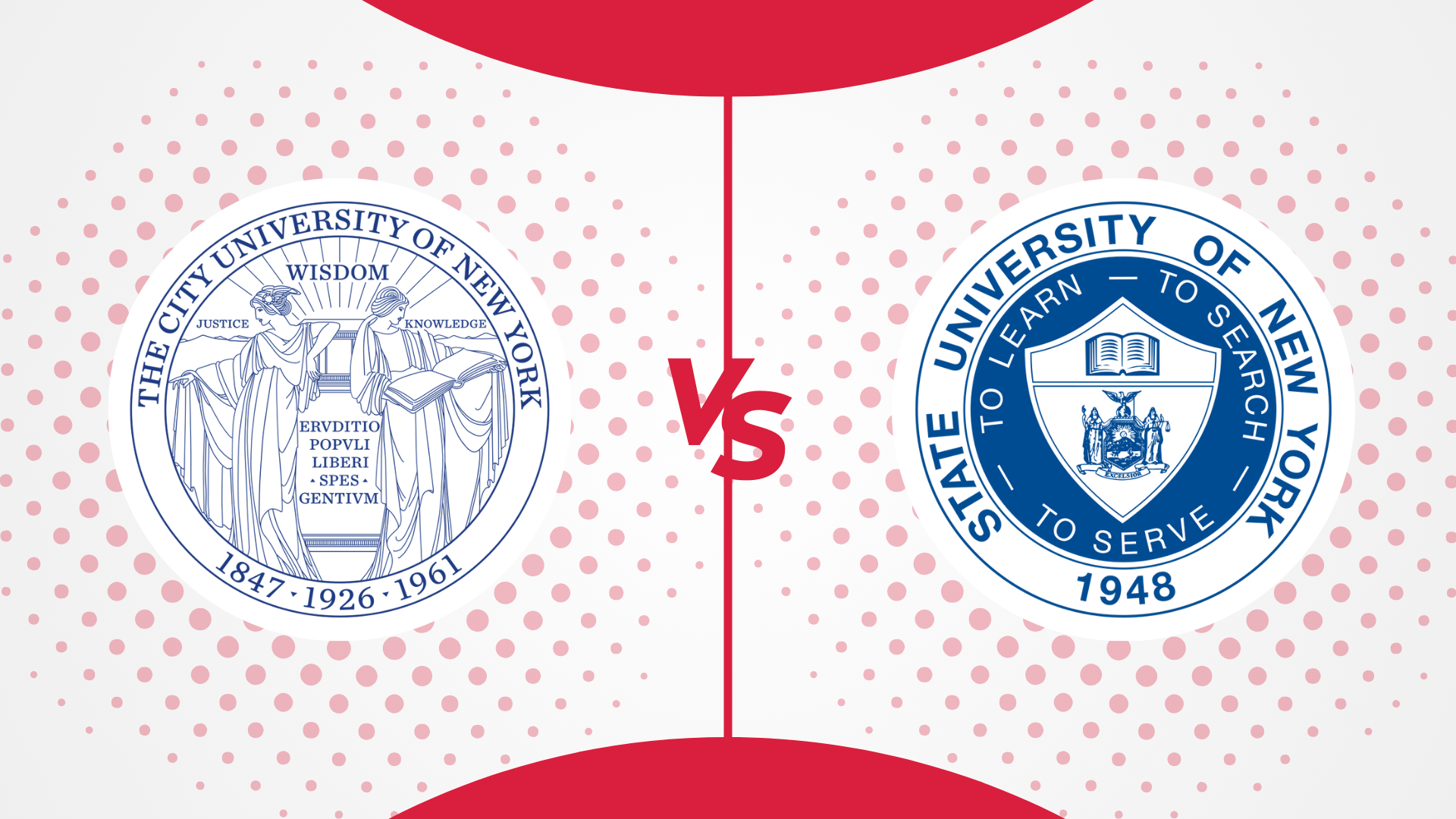
Compare more universities in USA
-
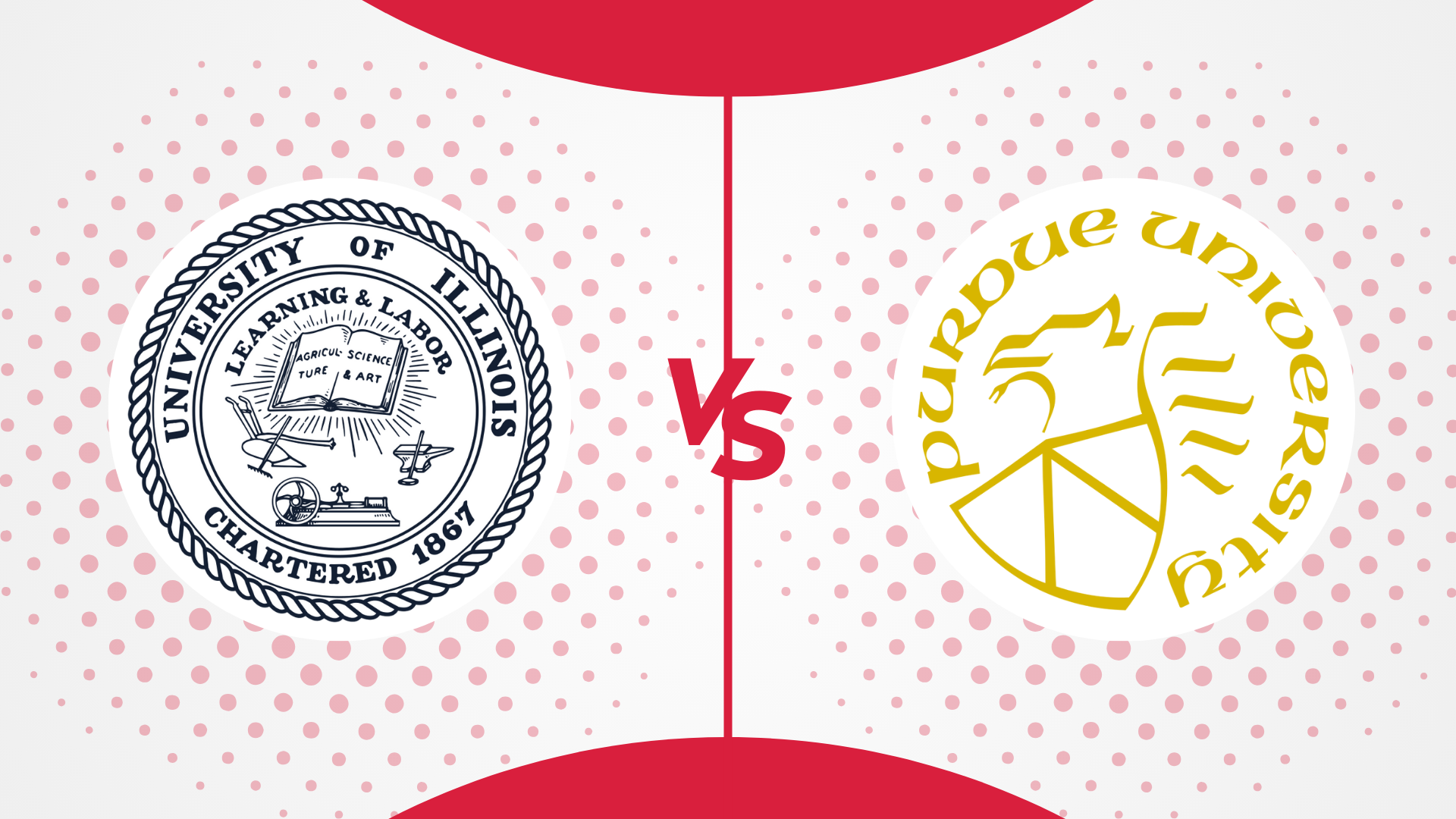
Purdue vs UIUC: How Do They Compare in 2025?
December 16, 2024 -
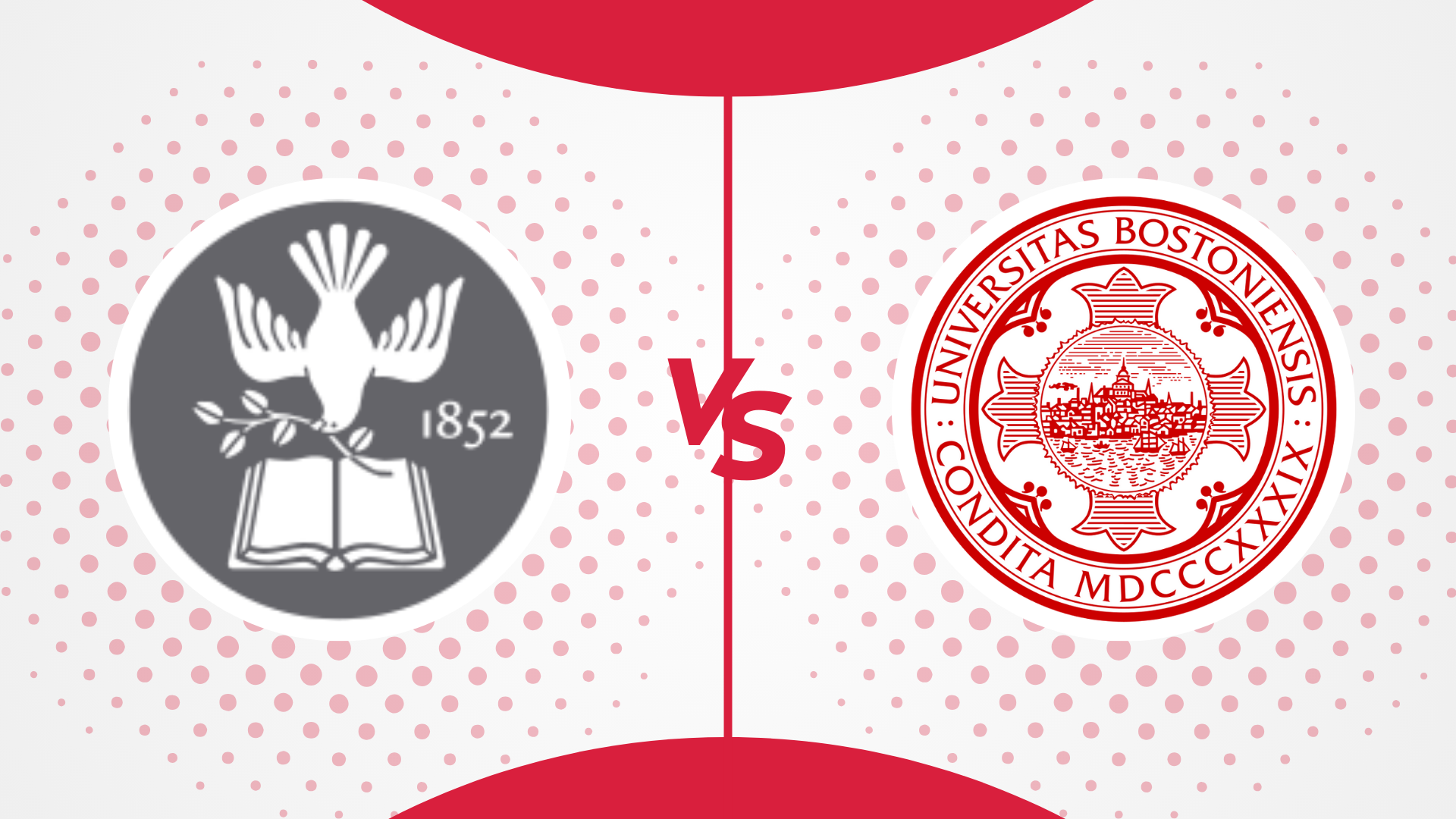
Tufts vs BU: How Do They Compare in 2025?
December 16, 2024 -

UIUC vs Georgia Tech: How Do They Compare in 2025?
December 3, 2024 -

Georgia Tech vs UT Austin: How Do They Compare? [2025]
September 24, 2024 -

UC Davis vs UC Irvine: How Do They Compare in 2024
September 10, 2024 -
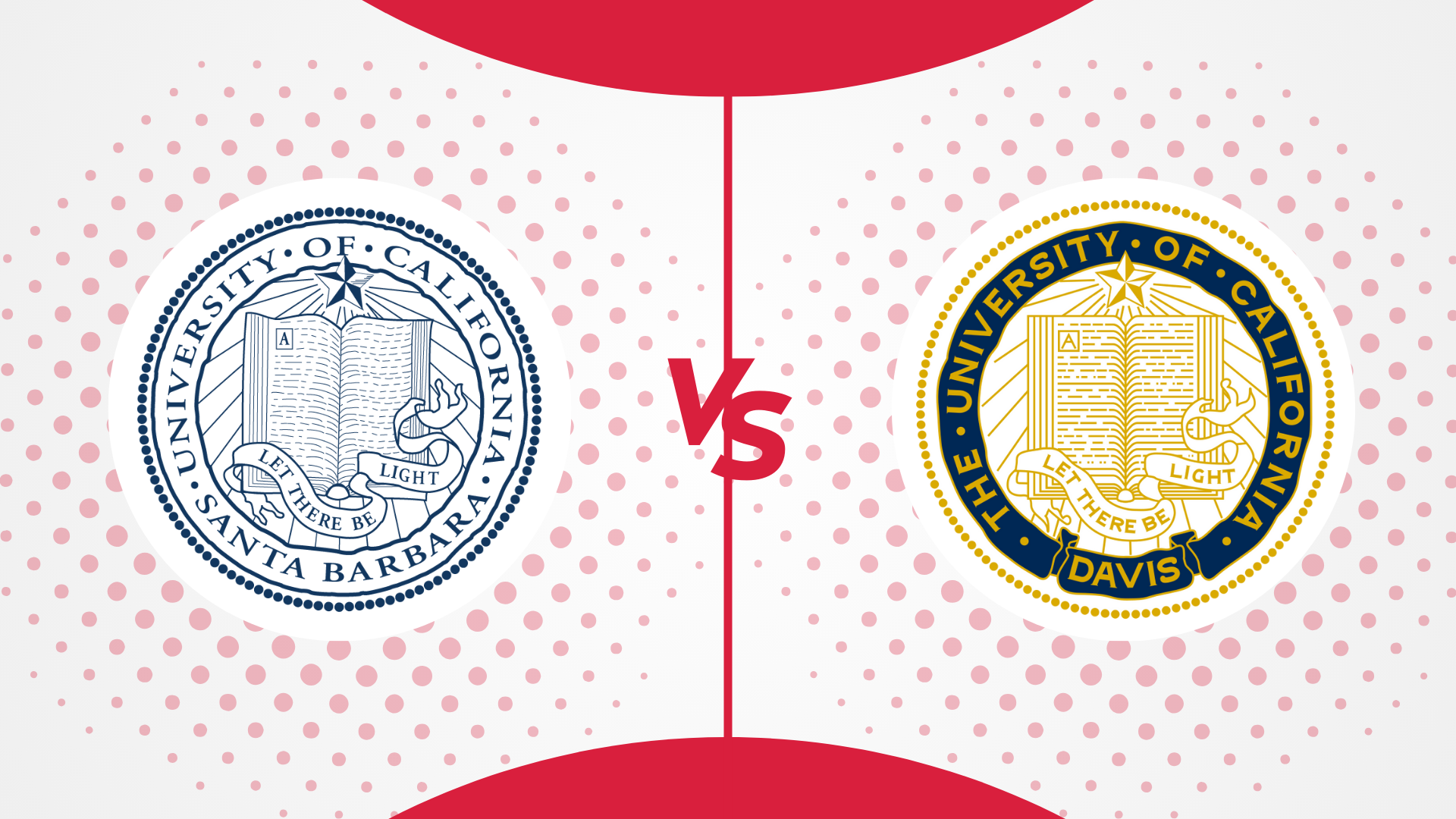
UC Santa Barbara vs UC Davis: How Do They Compare? [2024]
August 30, 2024 -
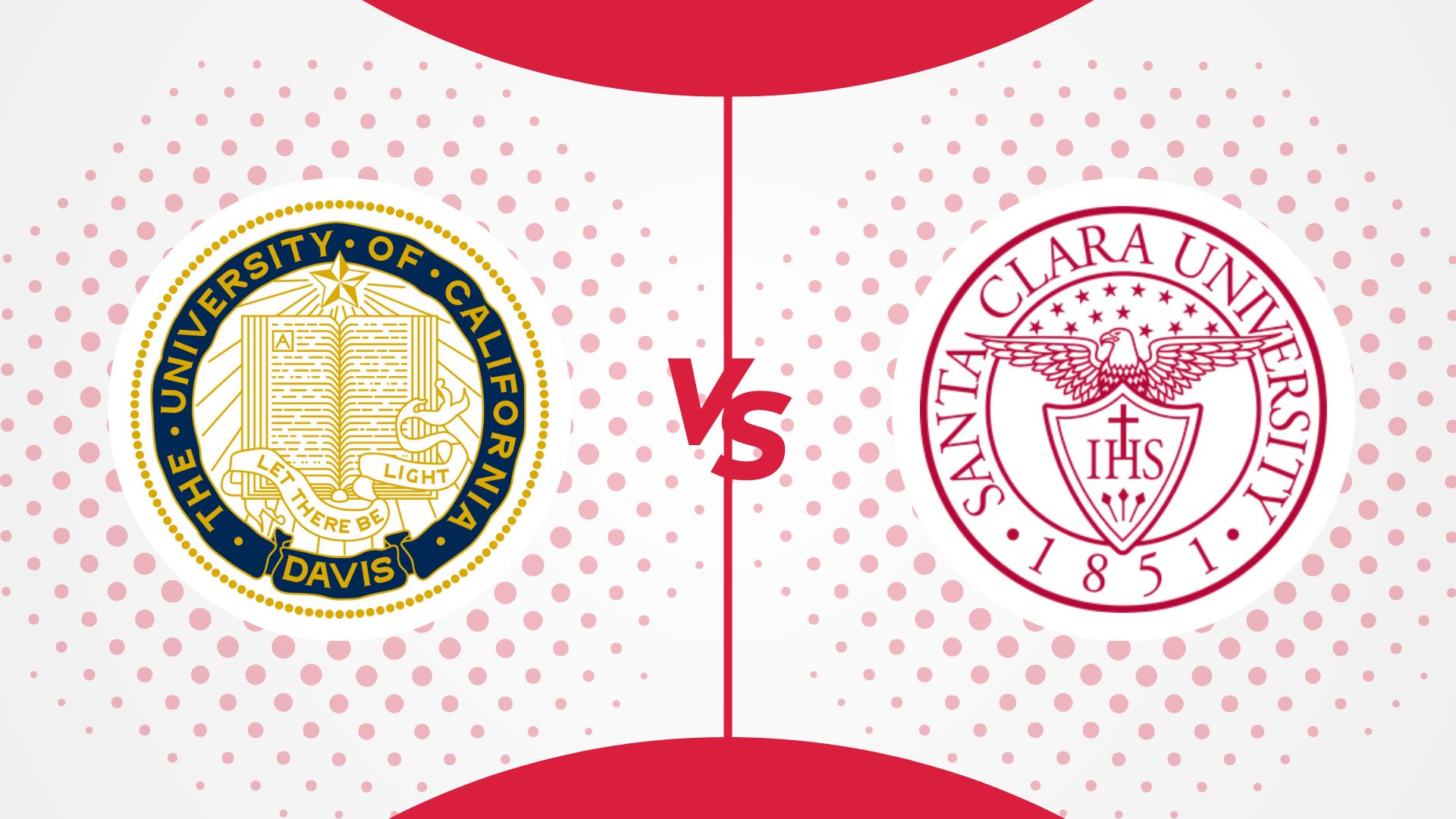
UC Davis vs Santa Clara University: How Do They Compare? [2024]
August 23, 2024 -

University of Chicago vs Northwestern University: How Do They Compare
August 20, 2024 -

Georgia Tech vs MIT: How Do They Compare? [2024]
August 7, 2024 -

Caltech vs MIT: How Do They Compare [2024]
August 2, 2024 -

MIT vs Harvard: How Do They Compare [2024]
July 27, 2024 -

Cornell vs Harvard: How Do They Compare? [2024]
July 27, 2024 -

Yale vs Harvard: How Do They Compare [2024]
July 22, 2024 -

Harvard vs Princeton: How Do They Compare [2024]
July 16, 2024 -
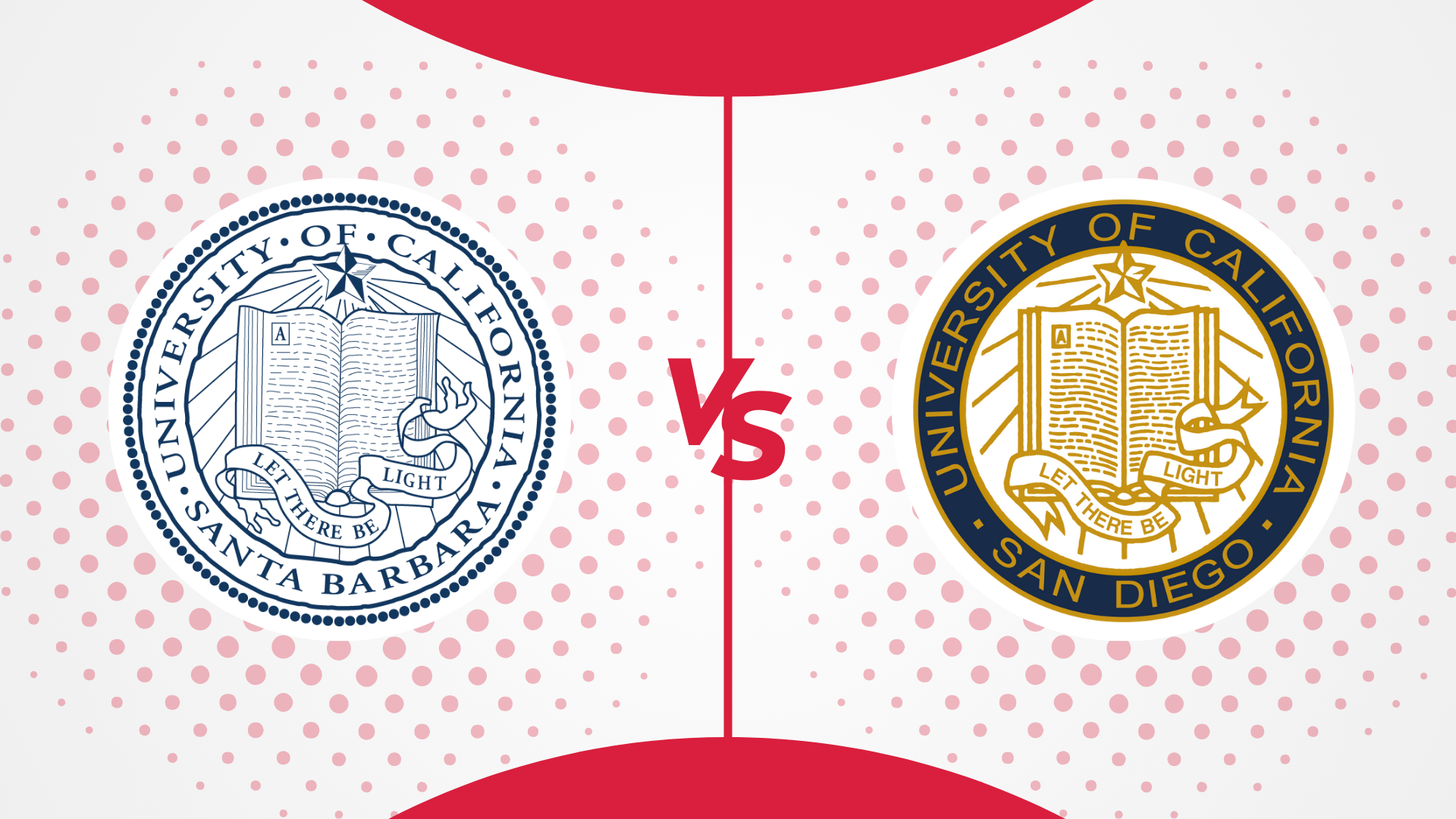
UCSD VS UCSB: Which One is Better For You in 2024
July 9, 2024 -
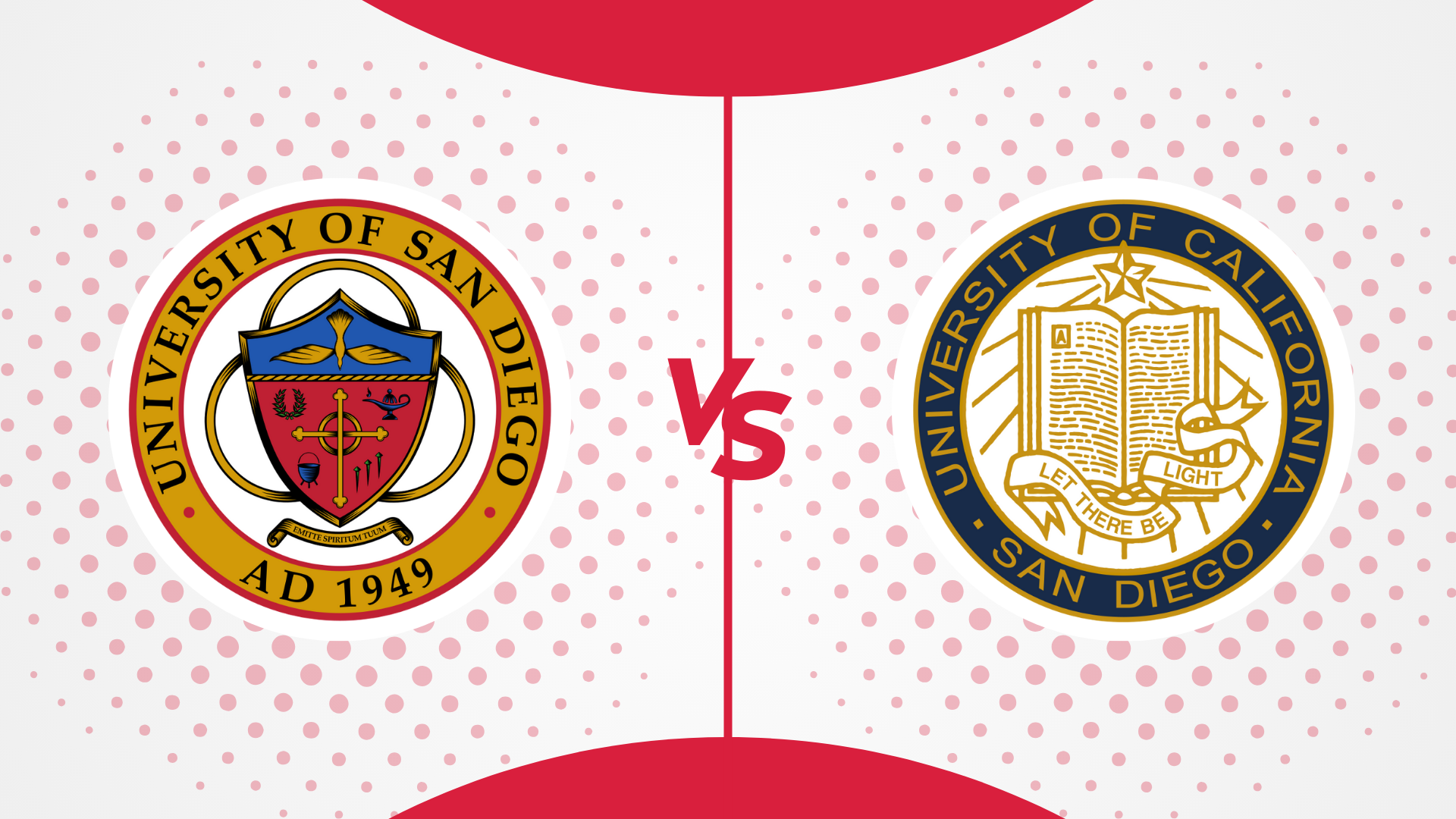
USD vs UCSD: Which one should you choose in 2024?
July 9, 2024 -
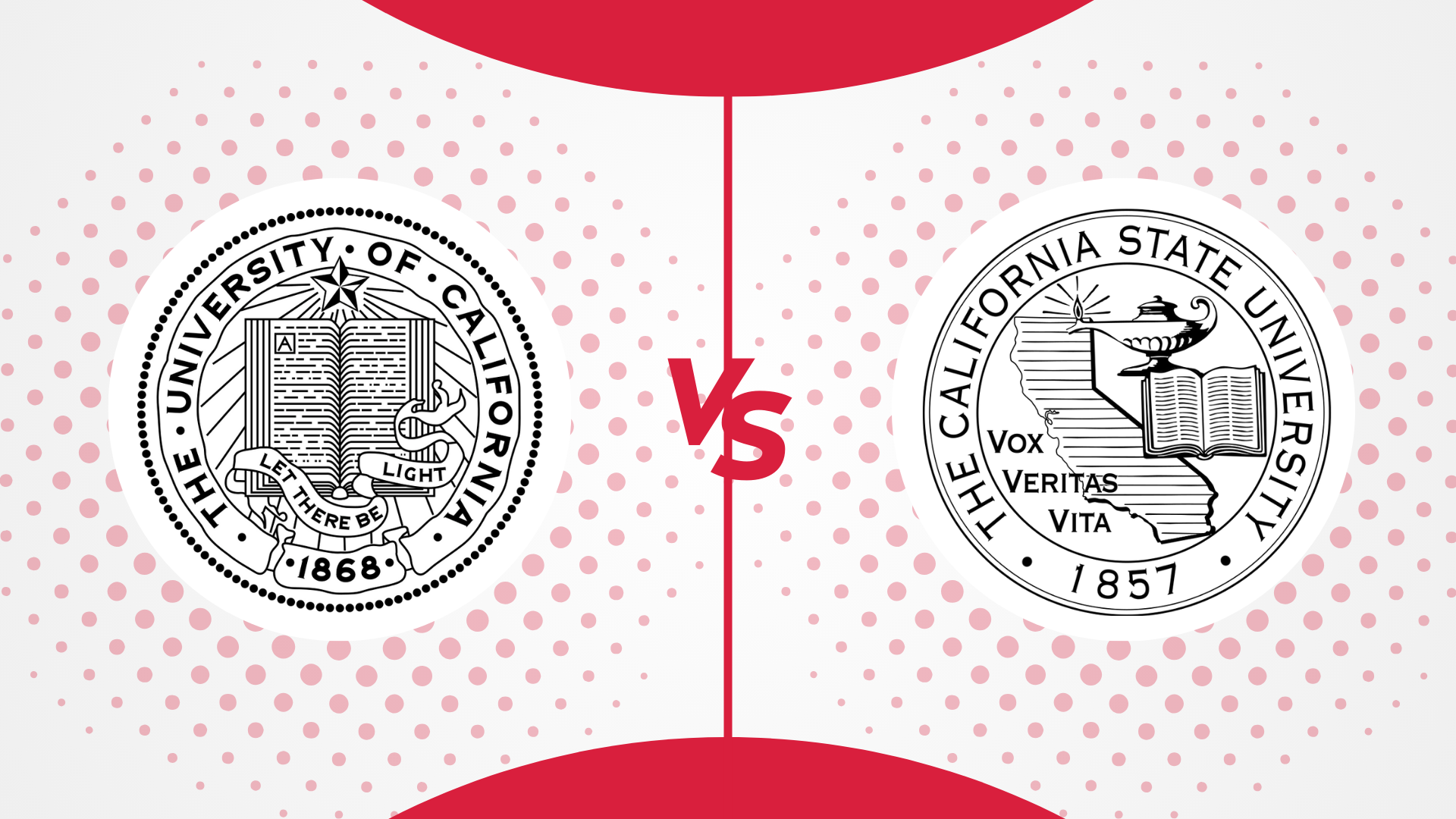
UC vs CSU: Which One is Better in 2024?
July 9, 2024 -
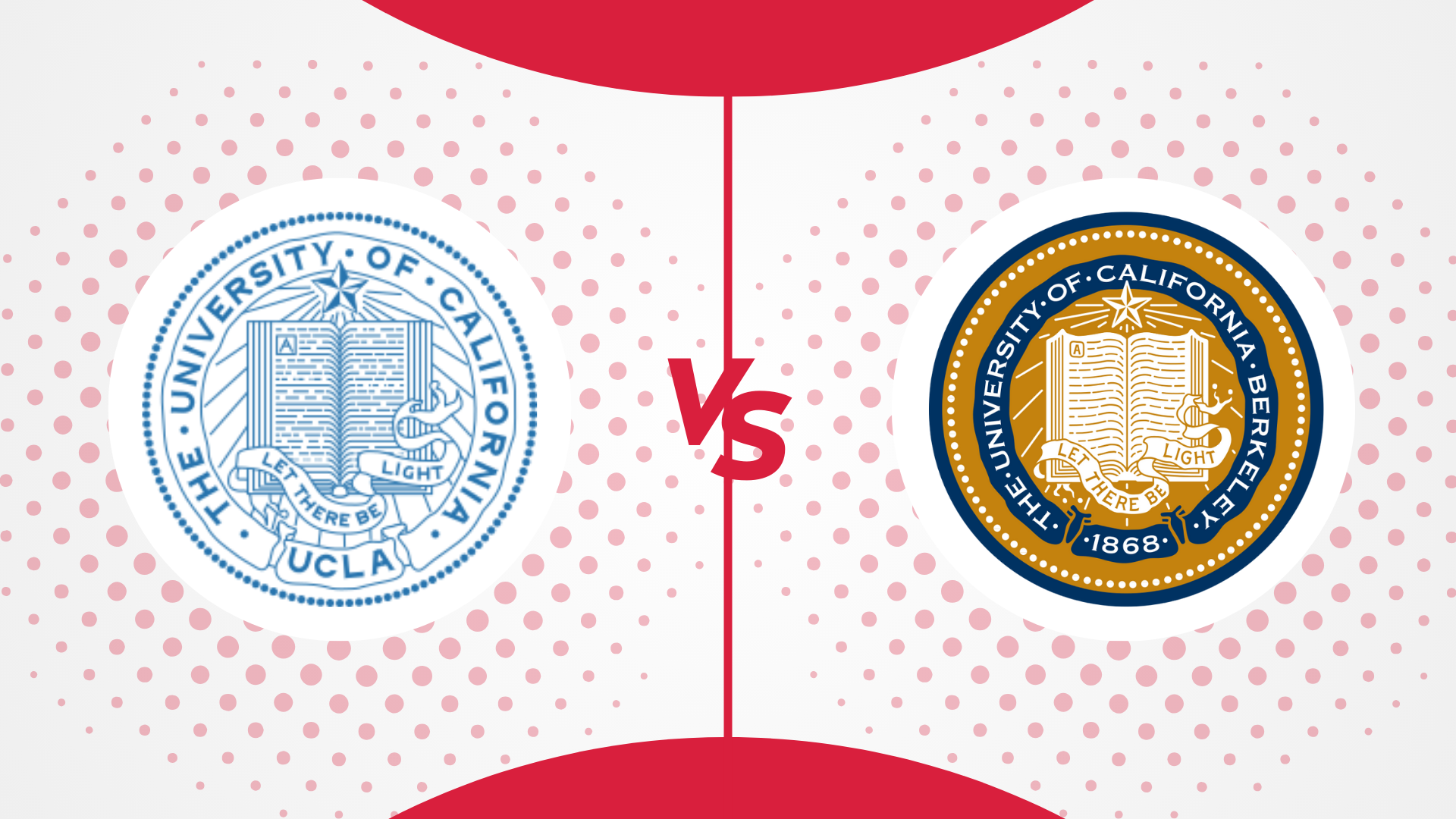
UCLA vs UC Berkeley: Which One is Best in 2024
July 9, 2024 -

University of Arizona vs Arizona State University: Which One is Better in 2024
July 9, 2024 -

Penn State vs UPenn: Which is Better for International Students in 2024
July 9, 2024 -

Northeastern vs Northwestern: Which One is Best in 2024
July 9, 2024 -

Northeastern University vs Purdue University – Which One is Better in 2024?
July 9, 2024 -

Boston College vs Boston University: Which One is the Best in 2024?
July 9, 2024 -

LSU vs UCLA: Which Is Better For You In 2024?
July 8, 2024 -

NYU vs Boston University: Which One Is Better For You In 2024
July 8, 2024 -

USC vs UCLA: Which One Is Better For You In 2024?
July 5, 2024 -
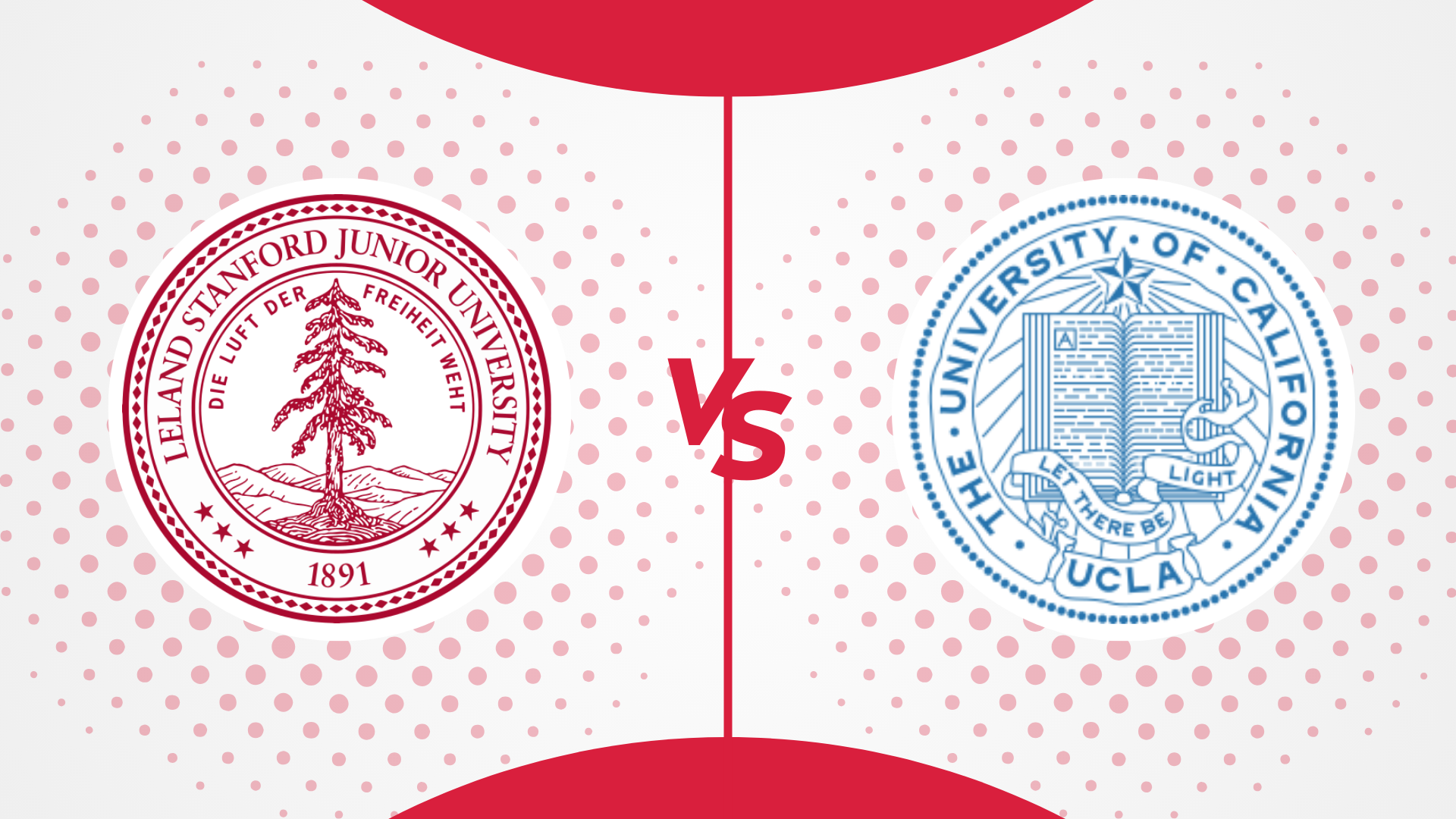
Stanford vs UCLA: Which One is Better For You in 2024
June 28, 2024 -

USC vs Stanford: Which One is Better For You in 2024
June 28, 2024 -
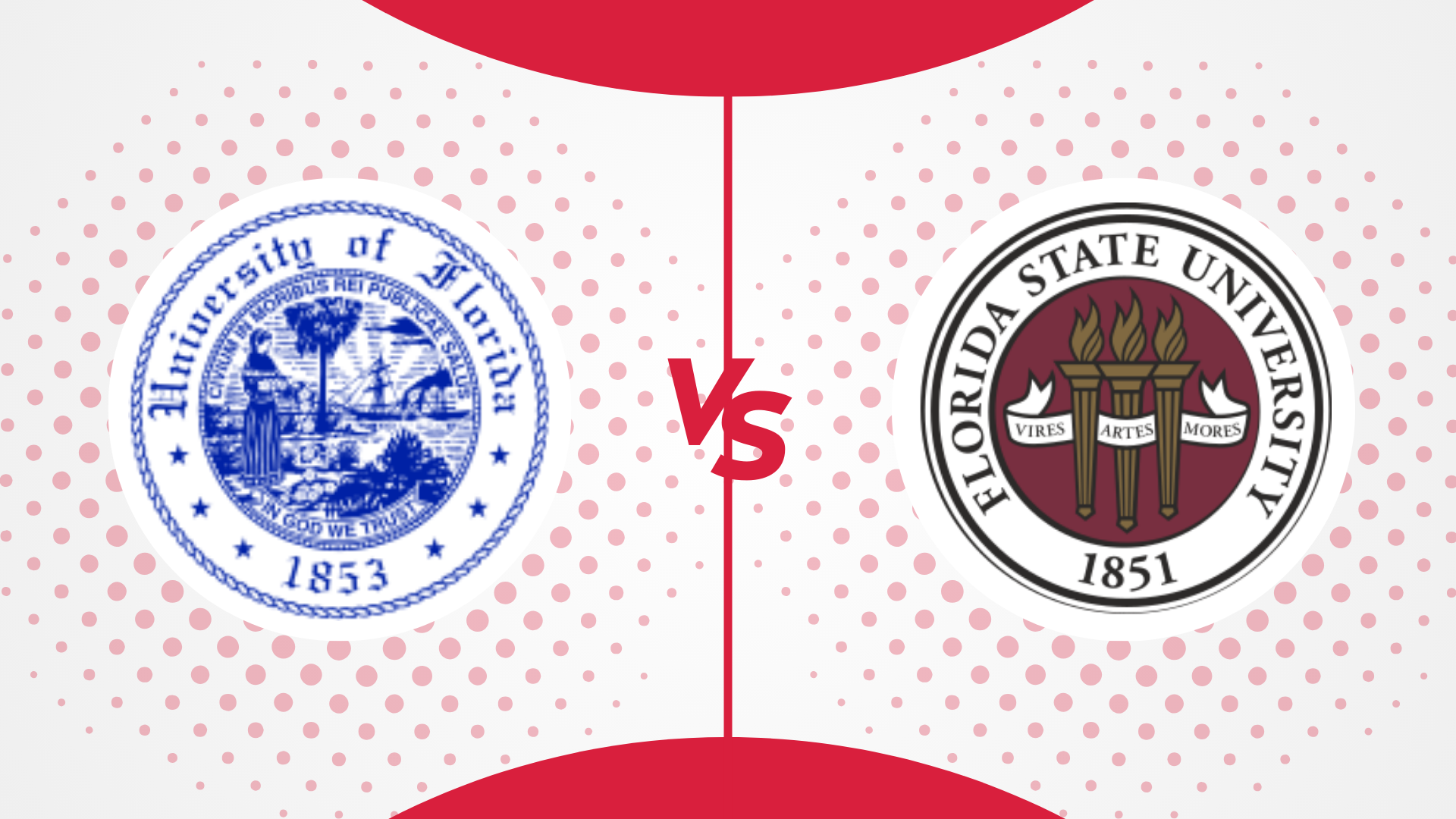
University of Florida vs Florida State University: Which One is Better For You in 2024
June 28, 2024 -

NYU vs Columbia: Which Is Better In 2024?
June 28, 2024 -

Princeton vs Columbia: Which Is Better In 2024?
June 28, 2024 -

NYU vs Cornell: Which One Is Better In 2024?
June 28, 2024 -

Boston University vs Northeastern: Which one is best in 2024
June 28, 2024 -

NYU vs UCLA: Which Is Better For You In 2024?
June 28, 2024
